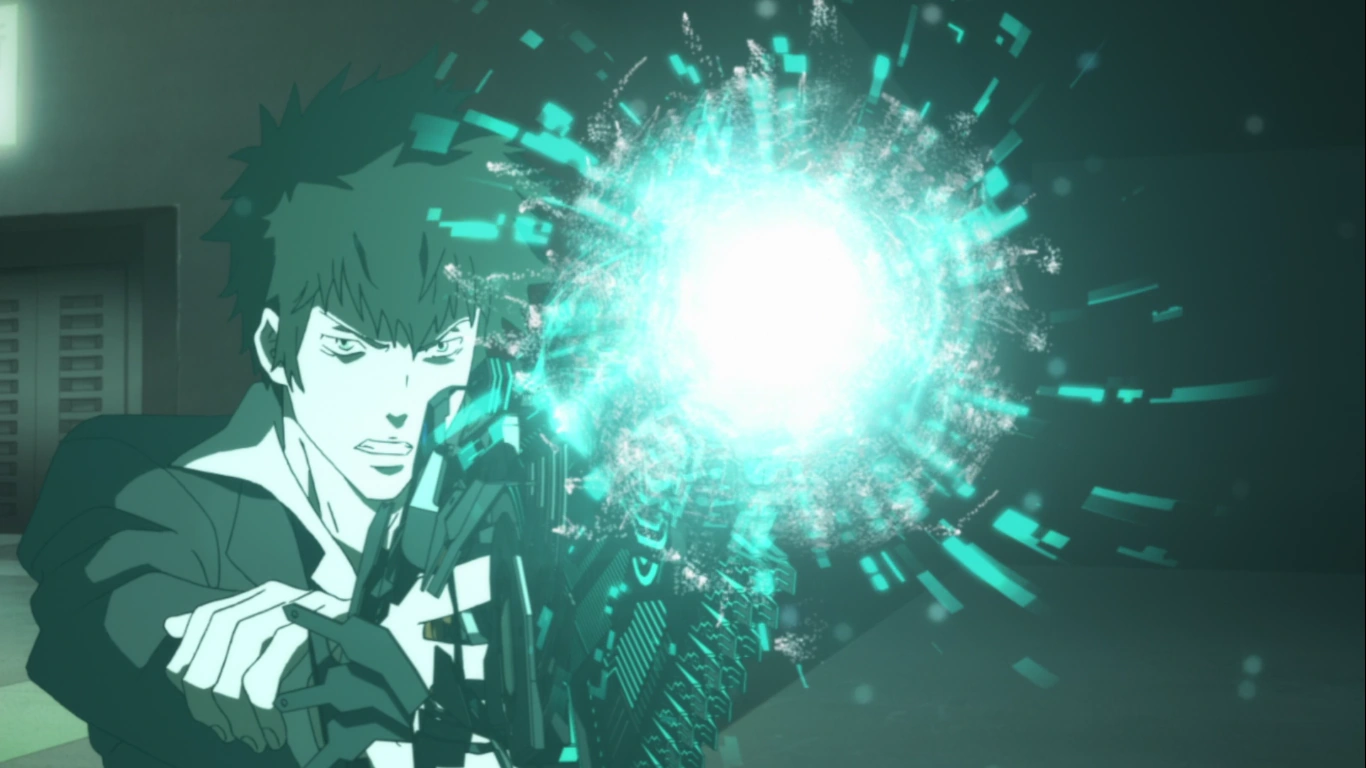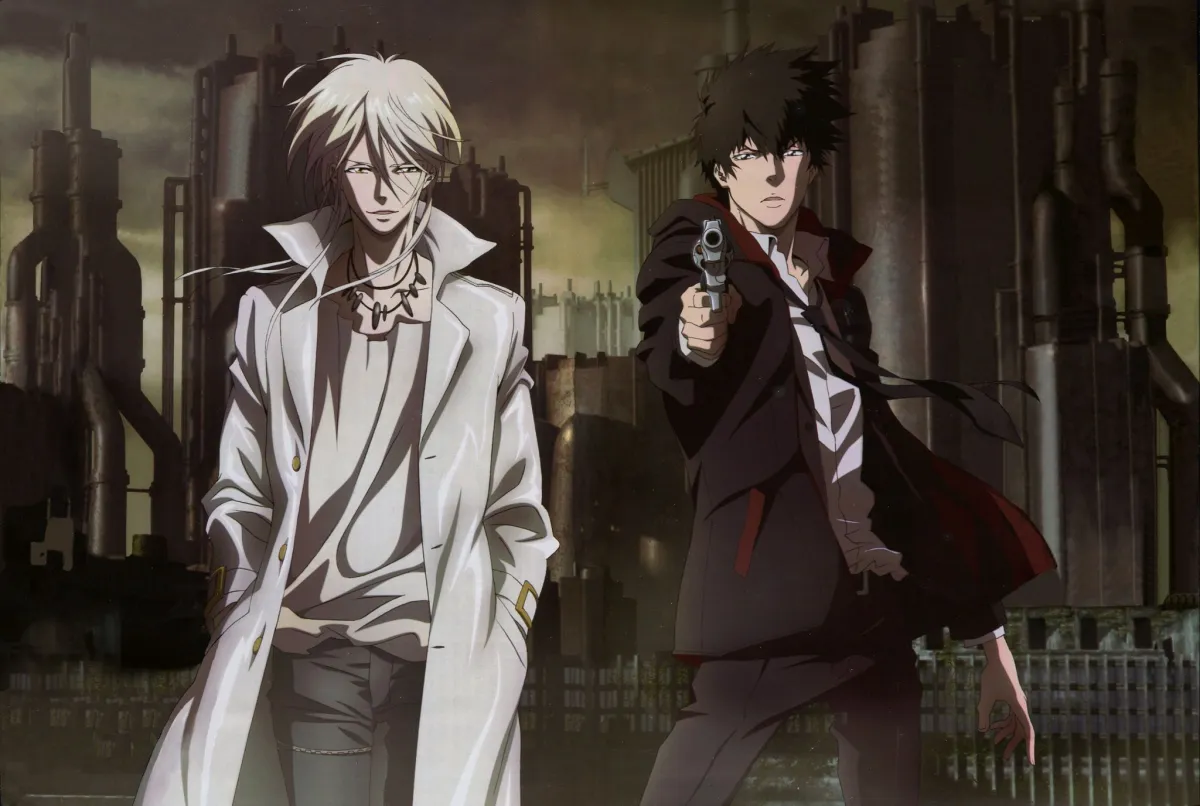I have always had an affinity for anime that illuminates the darker facets of our existence through the lens of science fiction. Such anime projects are known to provoke introspection and inundate the viewer with contemplative themes. “Psycho-Pass” is precisely one such endeavor. This series, penned by Urobuchi Gen and directed by Naoyoshi Shiotani, is a disconcerting dystopia replete with an astonishing cyberpunk milieu. The anime probes the nature of crime, the extent of free will’s true freedom, and interrogates the very feasibility of the ideal, secure society that piques everyone’s curiosity.
First, let us delve into the premise… The anime unfolds in the year 2113, a Japan not drastically dissimilar to our present-day society in terms of its architecture, but one that has made considerable advancements in infrastructure. The government has equipped the entire country, every street, workplace, and even residences with sensor-laden cameras, all integrated into a system known as Sibyl. These cameras gauge individuals’ mental states, monitor stress levels, and, in the event of potential extreme circumstances, transmit the data directly to the massive Crime Intervention Division.
People are under constant surveillance, their emotional states tracked in real-time. If there’s an elevation in stress levels in anyone or any segment of the city, the Crime Intervention Division steps in, preemptively preventing potential crimes. The team carries out this task with specialized weapons known as Dominators. The Dominator is a device that measures the stress levels of its target and, depending on the situation, can activate a non-lethal or lethal mode, a weapon that the holder personally cannot employ.

The story commences with the arrival of a rookie named Akane Tsunemori at the bureau. On her very first day, Akane becomes embroiled in a homicide case, showcasing her uniqueness and defiance against the system. As Akane eventually partners with Shinya Kogami, referred to as an Enforcer, whom the bureau rehabilitates criminals and incorporates into the team, she becomes a pivotal figure in the profound transformation unfolding within the city. While the initial few episodes depict individual crime prevention stories, the anime gradually evolves into a grand narrative.
Akane’s defiance against the system on her first day holds great significance for the narrative. The Dominator, as a weapon, determines not whether individuals are guilty but whether they should be killed based solely on their stress levels. Though the decision-making process remains human, anyone who wields the Dominator ends up doing exactly what the system instructs. After refusing to take the life of a criminal, Akane experiences a panic attack. This incident lays bare a truth that we will confront throughout the series: the Dominator reveals how flawed the seemingly flawless system has been from the very outset. People are living within a system that compels them to follow its every command, despite believing they have free will. The system’s advantage lies in preserving the safety of all and nearly eradicating the concept of crime. To the extent that, in the ensuing episodes, bystanders passively observe the brutal murder of a woman in broad daylight without intervening, as they do not consider it an actual homicide. Crime, as it were, has become virtually impossible.
The anime’s first season consists of 22 episodes, while the second season is comprised of 11 episodes. Additionally, there is a movie associated with the anime, and all the episodes are interconnected. However, I must note that the second season and the movie unfortunately do not reach the same level as the first season, mainly because the subject matter of the initial season is truly remarkable. Indeed, finding something as impactful as the first season can be quite challenging.
One can liken this anime to Steven Spielberg’s “Minority Report.” In “Minority Report,” potential crimes are foreseen by precogs, whereas in “Psycho-Pass,” a crime is tracked by a surveillance camera system. If there’s no camera, there’s no system, and consequently, the possibility of committing a crime emerges. As deaths begin to occur in the city, the bureau embarks on an investigation. However, the bureau places such unwavering trust in the Sibyl system that they struggle to comprehend these murders. Over time, the killings escalate and spill onto the streets. Here, a special mention is warranted for the antagonist in the first season, Shougo Makishima, who is one of the most intriguing villains ever created. He is someone who reads e-books, utilizes others to solve problems, and is unafraid to take direct action. Most intriguingly, he is a born killer. His innate propensity for murder becomes a turning point in the later episodes of the anime.

The cameras discern whether individuals are likely to commit a crime by monitoring their changing chemical states. Madness, the impulse to take a life, is conveyed as an abnormal state of mind. But what if taking someone’s life is as mundane as having a morning coffee for some? What does the system do then? If the Dominator does not deem it appropriate to shoot the person in front of it, there is nothing you can do, no matter your actions. Your fate is determined by the weapon, and how Sibyl, the system in question, will interrogate you.
Akane, who does not completely trust the Sibyl system, and her reluctant partner Kogami set out to apprehend this enigmatic Makishima. However, they find themselves entangled in the elaborate scheme of a madman determined to restore the state’s free will. A life without crime, where everyone lives happily, has always been a subject of dystopian curiosity. “Childhood’s End” explored this from a different perspective, highlighting the mundanity and impossibility of a seemingly perfect society. “Psycho-Pass” defines the perfect society as one without crime. Yet, it imbues the process of preemptively detecting crime with a system that is closer to reality than fantasy. Within this system, some individuals have sworn to disrupt the existing order.
You will find yourself asking the question, “What is crime?” repeatedly while watching this anime, especially in the final episodes. If there is a perfectly established system somewhere, there is invariably a perfect evil lurking behind it. In recent years, we have witnessed an abundance of works where we identify with anti-heroes and villains. “Psycho-Pass” will make you identify with the insurgent Makishima. You will both confirm and refute the truths of both sides. However, the ultimate decision will still be yours. Do you believe a perfect society is attainable? Can such a perfect society be achieved through isolation? Is a perfect society one without crime?

Cast & Crew
creator: Tow Ubukata
starring: Kana Hanazawa, Miyuki Sawashiro, Noriko Hidaka, Shizuka Itou, Kenji Nojima, Takahiro Sakurai
JAPAN | 2012 | 41 EPISODES |
